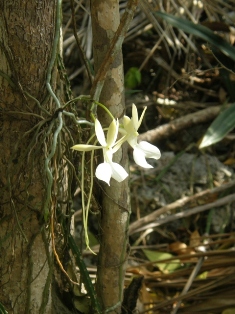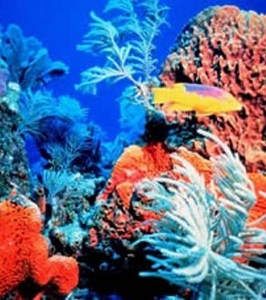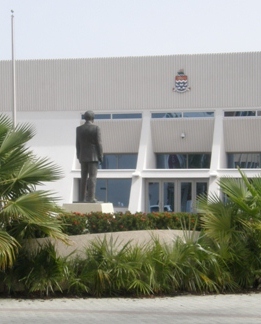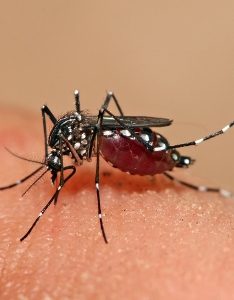Archive for September 11th, 2012

Minister visits St Lucia to talk on-line security
 (CNS): Before heading to Sri Lanka for the Commonwealth Parliamentary Association meeting the deputy premier was in St. Lucia attending the 8th Caribbean Internet Governance Forum where cyber security was under discussion. Juliana O’Connor-Connolly said she was keen to see developments in the prevention of cybercrime. "Strengthening our borders, whether land, sea, air or via the world wide web, is a priority to small economies such as the Cayman Islands,” she said. O’Connor-Connolly, who has responsibility for the ICTA, said there was a need for countries in the region to streamline their legislation for dealing with on-line crime.
(CNS): Before heading to Sri Lanka for the Commonwealth Parliamentary Association meeting the deputy premier was in St. Lucia attending the 8th Caribbean Internet Governance Forum where cyber security was under discussion. Juliana O’Connor-Connolly said she was keen to see developments in the prevention of cybercrime. "Strengthening our borders, whether land, sea, air or via the world wide web, is a priority to small economies such as the Cayman Islands,” she said. O’Connor-Connolly, who has responsibility for the ICTA, said there was a need for countries in the region to streamline their legislation for dealing with on-line crime.
“The Caribbean is not immune to cybercrime,” she added. “The global reach of criminal activities on the internet requires that countries cooperate and streamline their legal systems, whether through international treaties or national legislation, to better combat these activities and their wide-ranging consequences,” O’Connor-Connolly said after she returned from the trip.
“In the past, cyber criminals have taken advantage of jurisdiction issues. Cybercrime results in global losses and it is in everyone’s interest toprevent it,” she said. “As a country and the region as a whole, we need to recongise how the harmonisation of international law is related to cybercrime and put in place the proper legislation to share information between countries to ensure that criminals are prosecuted to the full extent of the law and swiftly.
“Without information sharing and the proper framework, we limit ourselves on a regional and national level. It therefore means that the chances of prosecution would be limited or considerably less severe," the minister stated.
The event is organised by the Caribbean Telecommunications Union (CTU) and facilitates an annual review of Caribbean Internet Governance Framework and discusses key Internet Governance (IG) issues and developments in the region.
Alongside crime the existing internet addressing scheme and mobile technologies being deployed by the regional providers was also on the agenda.
“Rationalisation of Internet traffic flows within the region to improve local internet infrastructures, quality of service and efficiency was discussed. Presently we have an expatriation of local content and hosting services in the Cayman Islands and as an outcome of this conference, this model will be re-examined in regards to this critical national infrastructure,” said Kernilon Owens of the Office of Telecommunications (OFTEL), who accompanied the minister.

Call comes for Cayman cops to register interests
 (CNS): In the wake of news from Jamaica that 18 cops have been charged with breaching that country’s corruption prevention act after they failed to file statutory returns or declare their assets, a local attorney has called for the introduction of a register of interests here for senior law enforcement officials, the attorney general and the director of public prosecutions. The only people required to reveal their assets on a formal register are politicians, but there are no consequences for MLAs who fail to comply with the Register of Interests Law. The Standards in Public Life Commission has, since its creation in January 2010,pushed for legislation with teeth but at present there is no enforcement regarding potential business conflicts and any of Cayman’s public officials.
(CNS): In the wake of news from Jamaica that 18 cops have been charged with breaching that country’s corruption prevention act after they failed to file statutory returns or declare their assets, a local attorney has called for the introduction of a register of interests here for senior law enforcement officials, the attorney general and the director of public prosecutions. The only people required to reveal their assets on a formal register are politicians, but there are no consequences for MLAs who fail to comply with the Register of Interests Law. The Standards in Public Life Commission has, since its creation in January 2010,pushed for legislation with teeth but at present there is no enforcement regarding potential business conflicts and any of Cayman’s public officials.
Peter Polack, an outspoken member of the local legal profession, said Tuesday that during his inaugural speech the governor had promised an era of transparency, which should, like charity, begin at home.
“Senior government officials such as the attorney general, the director of public prosecutions and the RCIPS commissioner should declare their financial interests and value both locally and abroad,” Polack said. “This has been a useful anti-corruption tool worldwide and should be easily embraced by those charged with maintaining public order and integrity.
“Jamaica has a Prevention of Corruption Act that requires all members of the police force to file a financial return. Recently the fearless and bright Jamaican DPP dragged 18 members of the police force before the court, including a senior superintendent. The RCIPS would go some way towards restoring public confidence by voluntarily adopting such a requirement in anticipation of speedy legislation to implement such a necessary and ubiquitous formality.”
The issue of potential or perceived corruption in high places in government has been highlighted in a number of reports, such as those from the auditor general as well as the standards commission, which has also suggested expanding the idea of a register of interests to other public officials.
However, so far only one lowly civilian staffer in the RCIPS has been charged under the Anti-corruption Law, while the Anti-Corruption Commission has been conspicuous by its silence and its failure to keep the public informed about the work it is doing to deal with the allegations made to it.
Although Edlin Myles, the former deputy of the National Housing Development Trust has been charged with fraudulently selling insurance policies to trust tenants, he has been charged with theft under the Criminal Procedure Code and not the Anti-corruption Law, despite the fact that the prosecution claims Myles used his public role and position on the board to sell the policies.
See article relating to Jamaican police here.

Orchid in 100 critical species
 (CNS): The beautiful and hauntingly delicate ghost orchid, which is found only in the Cayman Islands, has been included on a list of 100 species around the world that are facing extinction. The new report on the world’s most threatened species, entitled "Priceless or Worthless?", which is a collaborative effort sponsored by a number of international conservation groups, examines what can be done to save the animals and plants that are most at risk. It reveals that the ghost orchid is now confined to one square kilometre in what is known as the Ironwood Forest in George Town. The writers call on the Cayman government to enact protective legislation to save the flower before it is too late.
(CNS): The beautiful and hauntingly delicate ghost orchid, which is found only in the Cayman Islands, has been included on a list of 100 species around the world that are facing extinction. The new report on the world’s most threatened species, entitled "Priceless or Worthless?", which is a collaborative effort sponsored by a number of international conservation groups, examines what can be done to save the animals and plants that are most at risk. It reveals that the ghost orchid is now confined to one square kilometre in what is known as the Ironwood Forest in George Town. The writers call on the Cayman government to enact protective legislation to save the flower before it is too late.
The news of the serious danger presented to this incredible and unique flower comes on the heels of news from researchers last week that the country’s national bird, the Cayman parrot, is also facing possible extinction in the next forty years. The ghost orchid, however, is likely facing an even shorter time line without intervention.
The report notes that the ghost orchid (Dendrophylax fawcettii) is found in this last “remaining fragment of old-growth forest” on Grand Cayman and is surrounded by urban development. The forest extends just 46 acres and the orchids are confined to an area of only six of those acres.
‘”The Cayman Islands currently lack the comprehensive conservation legislation necessary to establish national protected areas, and only five per cent is under the protection of the National Trust for the Cayman Islands,” the authors Jonathan E M Baillie and Ellen R Butcher note.
“With appropriate legislation, protection of the Ironwood Forest would be possible, either by purchase or through establishing management agreements with the private landowners. This would benefit the landowners by enabling them to maintain their land in its natural state, as they have done for generations. All that is required to enable this is the political will.”
The report is a collaborative effort supported by the International Union for Conservation of Nature, the Species Survival Commission and the Zoological Society, with the assistance of environmentalists, researchers and volunteers from all over the world.
Writing about the forest where the orchid is found, the authors say that habitat destruction due to infrastructure development is the cause of the species decline. They also note that preserving this forest would not only protect the ghost orchid but numerous other indigenous species could be protected as well, including Cayman’s national flower, the banana orchid (Myrmecophila thomsoniana), the Ironwood tree (Chionanthus caymanensis), thatch palm (Coccothrinax proctorii) and Hohenbergia caymanensis – better known as 'Old George', a giant bromeliad known naturally only from this area.
The report examines the 100 most critically endangered species in the world. “If we don’t rapidly increase the amount of conservation attention that they receive, they may soon be lost forever," the authors report in the publication, which covers newts, tortoises, birds, fish, trees and flowers from all over the world.
“The declines of most of these species have been caused by humans and in almost all cases their extinction can be avoided and the decline reversed,” Baile writes in his introduction, in a report that identifies what can be done to preserve the diversity of life on earth.
Download the report here (he ghost orchid is feature on page 40).

Major new reef research centre opens in Florida
 (CNS): A new $50 million centre for coral reef ecosystems research will be opening in Hollywood, Florida later this month. The new facility at the Nova Southeastern University will be the largest and only research facility in the United States dedicated to coral reef ecosystems research. Receiving the largest research grant in NSU’s history officials said this was recognition of the tremendous value of coral reefs to the US and the considerable threats and stressors now impinging upon them, said Dean Richard E. Dodge, Ph.D, executive director of the NSU’s National Coral Reef Institute (NCRI). The Centre aims to develop solid research products and information that will lead to better management and conservation solutions.
(CNS): A new $50 million centre for coral reef ecosystems research will be opening in Hollywood, Florida later this month. The new facility at the Nova Southeastern University will be the largest and only research facility in the United States dedicated to coral reef ecosystems research. Receiving the largest research grant in NSU’s history officials said this was recognition of the tremendous value of coral reefs to the US and the considerable threats and stressors now impinging upon them, said Dean Richard E. Dodge, Ph.D, executive director of the NSU’s National Coral Reef Institute (NCRI). The Centre aims to develop solid research products and information that will lead to better management and conservation solutions.
NSU scientists will conduct reef research locally, nationally and globally at the 86,000-square-foot Centre of Excellence for Coral Reef Ecosystems Research. The facility is located at NSU’s Oceanographic Centre at John U. Lloyd Beach State Park.
Research at the Centre will allow for greater understanding of how reefs respond to threats, officials said in a release ahead of the planned opening ceremony later this month. Eliminating or mitigating local threats to coral reefs is part of that solution. Some of these are easy fixes that include stopping overfishing, controlling pollution, and establishing marine protected areas.
As a multi-disciplinary facility, the Centre will generate information and research products to help understand, conserve and protect coral reef ecosystems. In addition to having laboratories and sophisticated equipment, the Centre has space for research collaboration, training, and fieldwork staging, a marine science library and an 85-seat auditorium. The building’s design promotes research by current and new faculty, researchers, visiting scientists, post-doctoral fellows, and graduate students.
An important partner with the National Oceanic and Atmospheric Administration (NOAA) the NCRI has long supported NOAA’s mission by providing scientific research regarding local solutions to global oceanographic crises. “NSU’s new Centre of Excellence fits perfectly within NOAA’s mission and provides both urgently needed physical facilities and expanded scientific capacity regionally, nationally and globally,” Dodge added.
NSU received a $15 million competitive grant from the U.S. Department of to build the centre, while the university funded the rest of the project. The grant was one of 12 given by the Department of Commerce’s National Institute of Standards and Technology as a result of a nationwide competition.
“By opening this state-of-the-art facility, NSU is taking a leadership role in Florida’s marine science research and helping boost an important multibillion dollar coral industry that employs thousands of South Floridians and sustains many small businesses,” NSU President George L. Hanbury II, Ph.D. said. “The centre is critical for the environmental sustainability of coral reefs, which are the life blood of our region and oceans.”

Visitor sexually assaulted
(CNS): Police have confirmed that a female cruise passenger was the victim of an alleged sexual assault in the George Town area more than six weeks ago. A spokesperson for the RCIPS said Tuesday that a man had now been arrested in connection with the incident but had been released on police bail as the investigation continues. "We can confirm that a 43-year-old man was arrested on Saturday 18 August on suspicion of attempted rape. The arrest was in connection with an incident involving a female cruise ship passenger in the George Town area on Friday 27 July,” she added. No details of where the passenger was visiting from or her age were given but CNS understands that the teenage, visitor was assaulted during an onshore tour.
On the day in question the only ship in port was the Carnival Legend with 2,124 passengers, which arrived in port at 8:30am and left at 4:50pm.

Swallowed toothpick causes blood poisoning
 (BBC): A woman developed severe blood poisoning and a liver abscess after inadvertently swallowing a toothpick. The toothpick perforated her gullet and lodged in a lobe of her liver. The patient, who is not being identified, has now recovered after having the toothpick removed. Such cases are rare, but the report, published by the British Medical Journal, says doctors need to look out for signs of "foreign bodies", as detection can be challenging. It is one of thousands of cases being logged at BMJ Case Reports, an online resource to allow doctors to share information about the treatment of difficult or unusual cases.
(BBC): A woman developed severe blood poisoning and a liver abscess after inadvertently swallowing a toothpick. The toothpick perforated her gullet and lodged in a lobe of her liver. The patient, who is not being identified, has now recovered after having the toothpick removed. Such cases are rare, but the report, published by the British Medical Journal, says doctors need to look out for signs of "foreign bodies", as detection can be challenging. It is one of thousands of cases being logged at BMJ Case Reports, an online resource to allow doctors to share information about the treatment of difficult or unusual cases.

CIASA hosts annual Sea Swim
 (CIASA): The 28th Fosters Food Fair IGA 800m Sea Swim is the first sea swim of the season and it takes place on Saturday, September 15. The swim starts at 4pm, with registration from 3-3:45pm; and runs north, parallel to 7 Mile Beach starting at Governor’s Beach and ending at Public Beach.The sea swim attracts a wide variety of participants – competitive and non–competitive swimmers of all ages – and is a great family activity which allows parents to set a great example of living a healthy life, by swimming with their children.
(CIASA): The 28th Fosters Food Fair IGA 800m Sea Swim is the first sea swim of the season and it takes place on Saturday, September 15. The swim starts at 4pm, with registration from 3-3:45pm; and runs north, parallel to 7 Mile Beach starting at Governor’s Beach and ending at Public Beach.The sea swim attracts a wide variety of participants – competitive and non–competitive swimmers of all ages – and is a great family activity which allows parents to set a great example of living a healthy life, by swimming with their children.
Registration takes place at Governor’s Beach and registration entry fees are CIASA members: CI$10.00 for children and CI$ 15.00 for adults; non-members: CI$15.00 for children and CI$ 20.00 for adults.
“Fosters Food Fair IGA is delighted to be part of this event again,” said Fosters Food Fair IGA Managing Director Woody Foster. “Our companies, and more importantly our family, are long-time supporters of swimming and we always look forward to this event, to see how many of the Foster’s Family actually turn out to swim … and equally important, how many of them are actually able to come in ahead of Ms Chi-Chi who sets a wonderful example to us all of the benefits of swimming.”
The Fosters Food Fair IGA 800m Sea Swim also sees the beginning of a new partnership, that with Subway, who are now committed to providing swimmers with healthy Subway sandwiches at the end of each of the Season’s Open Water races. “This partnership with CIASA is a natural fit for Subway,” said owner Troy Burke “we are delighted to be a part of the vibrant swimming community and look forward to the swim on Saturday.”
All swimmers are provided with swim caps, which must be worn for safety reasons and there are event T-Shirts, trophies for the top three male and female finishers in each age group and Subway sandwiches and refreshments provided at the end of the race.

Retired seafarer gets community service for $180 theft
(CNS): A 78-year-old man was given 100 hours community service by a Grand Court judge last week after stealing $180 from a liquor store where he was working post retirement as a messenger. Henry Bodsit Ebanks had pleaded guilty to the theft, which took place in May 2008 while he worked for Jacques Scott in retirement as a messenger. Although theft normally carries a custodial sentence, Justice Carol Beswick found that the small amount of money taken, his guilty plea, his previously unblemished record and a low risk of reoffending made the retired seafarer a candidate for a non-custodial sentence.
Among the many mitigating factors she spoke of was the high regard he was held in by his community and the character references given for Ebanks, which included his local pastor as well as one from the country’s premier, McKeeva Bush.
The judge noted that theft had to be deterred given Cayman’s standing as a financial services centre but she said this was not a case that would be expected to impact on the economy in general or on the public in particular. She said that as a messenger, paid $8 per hour, Ebanks was not in a significant position of trust and had held no lofty positions at the firm even before his retirement.
The judge said the incident was one offence and he had paid back the money he stole. Furthermore, at 78, as he was no longer seeking employment, he did not pose a risk to the business community.
“It is my view that the circumstances of this case should not result in immediate imprisonment, and applying the law as I understand it, the appropriate sentence is one of giving age-appropriate voluntary service to the community,” Justice Beswick said.
“Accordingly I impose a sentence of 100 hours of community service, which will assist the defendant to repay his debt to society and will serve as a reminder … that the crime of theft was indeed committed and carries with it consequences, no matter how small the amount stolen.”
Ebanks was caught stealing the cash on the firm’s newly-installed camera. During his rounds collecting money from the various stores, he placed the money in a deposit bag down his sock. He was confronted and the money was found there.

Still no date for LA return
 (CNS): Despite government’s pressing legislative agenda, there is still no date set for government to return to the country’s parliament. North Side MLA Ezzard Miller said Monday that the continued disrespect to members and the democratic process was unacceptable but it was also damaging. The independent member pointed to the recent eleventh hour problem with the amendment to the Companies Law, which was rushed through parliament without consultation, as an illustration of the problems ignoring due process can create. Miller said the rules of parliament, which have been bent and twisted by government, were there for a reason.
(CNS): Despite government’s pressing legislative agenda, there is still no date set for government to return to the country’s parliament. North Side MLA Ezzard Miller said Monday that the continued disrespect to members and the democratic process was unacceptable but it was also damaging. The independent member pointed to the recent eleventh hour problem with the amendment to the Companies Law, which was rushed through parliament without consultation, as an illustration of the problems ignoring due process can create. Miller said the rules of parliament, which have been bent and twisted by government, were there for a reason.
Pointing to the significant problems that the offshore financial sector now faces with a law which has already been passed through parliament, he said it was a consequence of attempting torush legislation.
Members of the offshore sector and government are currently discussing the law in order to find a way to address a clause that now requires every single registered company in Cayman to keep a record of every single financial transaction in Cayman.
“This disrespect for the process has resulted in this significant problem with the Companies Law. It is what happens when you don’t follow procedure. The reason why a bill requires several readings is to make sure we’ve got it right,” Miller added.
He pointed to government’s attempts to press through a dozen laws from the first reading to the vote in two sessions by suspending standing orders, when each bill should have 21 days in the public domain before the second reading and the debate on the legislation.
With a long list of key legislation, much of which had issues, Miller warned that there were likely more problems to come for government with a number of the laws. He pointed to the National Pensions bill, which the employment minister is attempting to steer through parliament but presented a number of issues, with board members and the major local pension firms raising concerns about the law’s impact on both the funds and the members.
Miller warned that the clock was ticking on the need to bring the Framework for Fiscal Responsibility, which the premier signed with the UK last November, into local law before the end of this month. But with no date set for the next sitting, if that were to happen it was clear that, once again, there would be “no 21 day notice period” for critical legislation, he said.
It is understood that the premier is expected to return to work from his personal leave this week but he will be attending the FCCA conference in the United States and will not be returning to Cayman until after that. Meanwhile, the deputy premier is travelling again, this time to Sri Lanka for a Commonwealth Parliamentary Association conference, so the local parliament is unlikely to convene until the week beginning 17 September.

UK firm publishes results of Cayman mozzie test
 (CNS): The results of a genetic experiment among mosquitoes which took place in the Cayman Islands two years ago have finally been published in a scientific journal. In 2010 millions of genetically modified Aedes aegypti mosquitoes were released in East End by the UK biotechnology company Oxitec Ltd as part of a research test related to controlling dengue fever. In a report published Monday in the journal Nature Biotechnology, the scientists say that the experiment wiped out 80% of the local mosquitoes which can carry the disease. At the end of the 23 week test in conjunction with the MRCU, mosquitos had dwindled by four-fifths in the research site compared to the untreated area.
(CNS): The results of a genetic experiment among mosquitoes which took place in the Cayman Islands two years ago have finally been published in a scientific journal. In 2010 millions of genetically modified Aedes aegypti mosquitoes were released in East End by the UK biotechnology company Oxitec Ltd as part of a research test related to controlling dengue fever. In a report published Monday in the journal Nature Biotechnology, the scientists say that the experiment wiped out 80% of the local mosquitoes which can carry the disease. At the end of the 23 week test in conjunction with the MRCU, mosquitos had dwindled by four-fifths in the research site compared to the untreated area.
Dr William Petrie, Director of the MRCU, said incidences of dengue have grown rapidly in recent years and the only means of prevention is to target the mosquitoes which carry it.
“We need new tools in the fight against these dangerous pests, and today's publication shows that Oxitec's approach can provide that," he stated in a release.
Dengue, which is caused by a virus carried by the Aedes aegypti mosquitoes — though those in Cayman are not carriers — afflicts as many as 100 million people around the world each year. The virus can cause severeflu-like symptoms and fatal bleeding with around 500,000 people who develop the severe form dying.
Oxitec's Chief Scientific Officer, Luke Alphey, added that the report was an important result for the firm.
“We have developed our approach over a number of years and have conducted rigorous testing to ensure it is both sustainable and safe,” he said. “These data indicate that it is also extremely effective, as previous laboratory and modelling work had led us to hope. 80% suppression is an excellent result, especially as wild mosquitoes could migrate into the trial area — we should see even stronger reduction in larger or more isolated areas.
"We believe this approach can be used in many countries to offer a more effective, greener solution to controlling the Aedes aegypti mosquito and reducing Dengue Fever.”
During the Grand Cayman experiment the company used a technology to alter the DNA of the mosquito by inserting a copy of an altered gene. The modification caused the insects to produce excessive amounts of a protein disrupting their cell machinery. When the modified male insects were released they mated with wild females, and the scientists claimed the offspring died before reaching adulthood.
However, the experiment was not without its critics as environmental activists raised concerns that the experiments were not well monitored, did not follow accepted protocol in that the residents of East end were not consulted and the results are questionable.
In a press release in the wake of the publication in the science journal, GeneWatch UK said Oxitech had no clear baseline for the claims that it achieved an 80% reduction in the target population of mosquitoes.
“This poor quality paper pours cold water on the idea that Oxitec’s GM mosquitoes will be an effective way to tackle dengue” said Dr Helen Wallace, Director of GeneWatch UK. “Staff would be better employed using the well-established public health approach of removing mosquito breeding sites rather than in placing GM mosquito pupae at intervals across a site. Removing the flower pots and water containers where mosquitoes breed has the added benefit of reducing both mosquito species that spread dengue, not just one of them. It is hard to see how Oxitec can justify commercial releases of its GM mosquitoes based on such poor data.”
GeneWatch stated that Oxitec reports several different estimates of the reduction in the wild population of mosquitoes, ranging from 60% to 85% depending what comparisons are made. Because there is no baseline data on mosquito populations at the site, there is considerable uncertainty in the results.
“At different times, Oxitec moved mosquito traps from one location to another and changed the size of the release site, adding to difficulties in interpreting the results,” the activists claim. The NGO stated that releasing such large numbers of mosquitoes adds to concerns that the small percentage of surviving GM mosquito offspring and accidental releases of GM female mosquitoes could pose unnecessary risks.
The activists also warn that poorly effective approaches to reducing mosquito populations can actually increase the risk of the more severe form of dengue due to the loss of cross-immunity to different serotypes of the dengue virus.